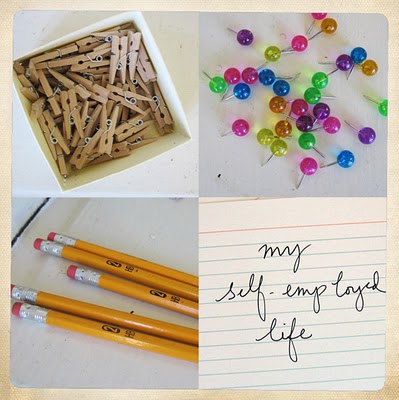I was having dinner with an old coworker recently when she told me she was looking at Chinese-language elementary schools for her two-year-old daughter to give her a leg up in the work world when she graduates from college. She told me that a friend’s daughter had graduated from college with a degree in English and wasn’t able to find a good job, so is going to grad school (on her parents’ dime) to wait out the bad economy.
For all my ex-coworker’s good intentions (I mean, who doesn’t want her child to be successful?), I think she’s misguided. Yes, fluency in another language is great, and a Masters degree can be beneficial, but what I’ve found most helpful – first in advancing my career, and later in my self-employed life – is the strength of my network.
Every full-time I’ve had since college, every consulting client I’ve gotten has come to me through my network. Every single one. I didn’t consciously cultivate this network (as so many job coaches and personal development gurus suggest you do). I’m not particularly self-promotional, I don’t have any fancy collateral, and I rarely go to networking events (partly because they often serve wine at those events, and I’d just embarrass myself after two glasses). Instead, I’ve followed a set of rules (unconsciously and spottily at first, and now very deliberately) that have helped me get recommended for jobs and clients and projects and shows. They are:
1. Act ethically. Whether you’re on the job or working with a client or developing a new design, ethics are important. This means not spending your days at the office surfing the web or playing Angry Birds. It means not overbilling your clients or raiding their office supply closet for your home office. It means not copying (or even strongly referencing) someone else’s design or blog post; it means not showing up late to set up for a show. Just don’t do it. You may think no one will notice. And maybe no one ever will, but karma’s a bitch. Besides, if people suspect you of malfeasance – even if they can’t prove it – they will hesitate to refer you.
2. Be professional. I once worked with a guy who, after he’d left, started writing a blog about work his previous employer had done. He picked apart all the projects, stating where each one had fallen short. The company we worked for was no longer around at that point; however, our former boss (a well-connected lady) saw his blog and asked, “Gee, does he ever want to work in this industry again?” Needless to say, none of us have referred him for work.
3. Do good work. Easy enough. Good work and a good attitude will get you far. That said…
4. No one likes a perfectionist. An A-/B+ is usually good enough. Perfectionists want an A+ all the time. They get hung up on the small details, deliberate endlessly, are rattled when things go wrong, and often fail to get their work done on time. In most situations, if you tell yourself that you your work has to earn a 90-95%, you’ll turn in something that’s pretty darn good – and do it on time. Of course, this rule doesn’t apply if you’re a surgeon or a building engineer. In those cases, strive for perfection.
5. Be a Connector. You get work because of your connections. Help your connections out, too. Put people in touch with each other. Pay it forward. I once referred a friend for a job I’d heard about through my network. Two years later when I was looking for work, she referred me to that same company. I will always agree to do informational interviews, and I interview 95% of the candidates referred to me for my clients.
6. Be gracious. No one likes a snot. Remember you’re part of someone else’s network. When someone helps you, thank them. When something doesn’t work out, let it go. Bygones and gratitude. Repeat three times.
7. Know when to stop asking. If someone doesn’t want to help you, don’t push. You want your network to be full of people who are enthusiastic about you.
When you’re self-employed – whether you’re an artist or a freelancer or a consultant – you are your brand. Your reputation is your calling card, and your network passes your calling card around. Treat your reputation and your network well, and work/clients/customers will come your way.
P.S. I’m sure I’m missing a few rules, but seven seems like enough to get anyone started. If you have more, leave them in the comments.


i agree with all of these!
#4 is so true — i remember an entrepreneur who spoke at one of my classes during undergrad. he said he didn’t hire students with 4.0 GPAs but little else, because he questioned their social skills. (phew! was not a problem for me ;) )
I loved this post. You wear it well!